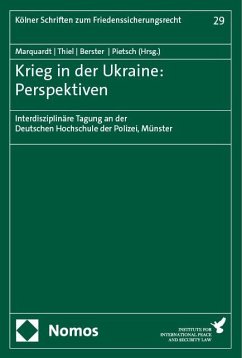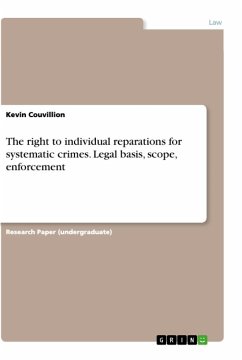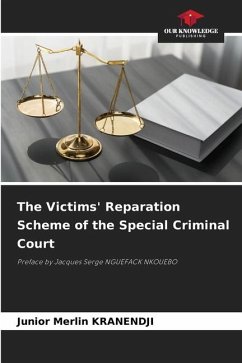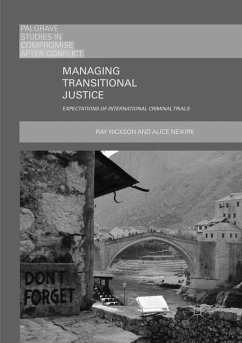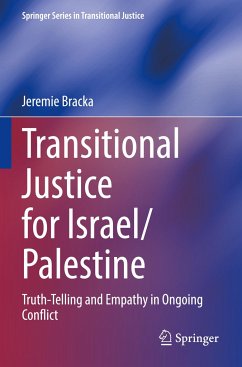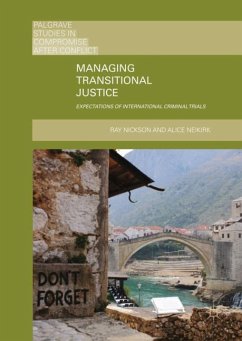Nicht lieferbar
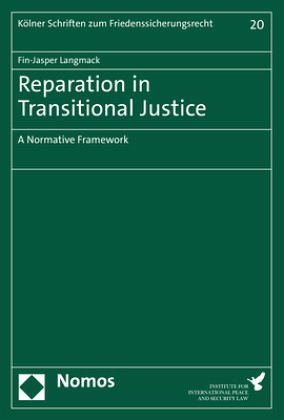
Reparation in Transitional Justice
A Normative Framework
Versandkostenfrei!
Nicht lieferbar
In the aftermath of armed conflicts, genocide and other forms of systemic injustice, states - and increasingly international courts - must repair a large number of survivors of grave human rights violations. As part of a transitional justice process, such reparation should also enable societal transformation. This study offers the most comprehensive proposal for legal standards in this complex situation to date. It comprises interview-based case studies of the reparation programs in Sierra Leone, Colombia, and at the International Criminal Court, as well as theoretical reflections on the goals...
In the aftermath of armed conflicts, genocide and other forms of systemic injustice, states - and increasingly international courts - must repair a large number of survivors of grave human rights violations. As part of a transitional justice process, such reparation should also enable societal transformation. This study offers the most comprehensive proposal for legal standards in this complex situation to date. It comprises interview-based case studies of the reparation programs in Sierra Leone, Colombia, and at the International Criminal Court, as well as theoretical reflections on the goals and role of reparation in transitional justice. With that, the study provides deep insights into the problems and opportunities of this instrument.





